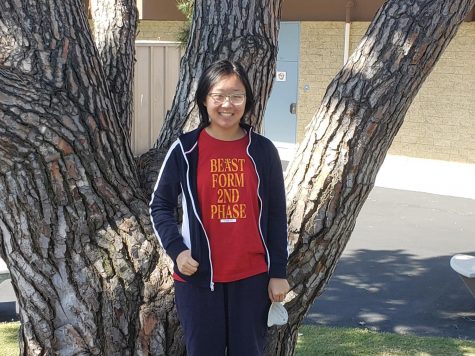Curriculum changes in the Science Department
February 15, 2019
Current and incoming freshmen will now be required to take Biology, Chemistry, and Physics in order to graduate. The curricula of these classes have been changed in order to integrate Earth and space sciences as well as adhere to the Next Generation Science Standards, which are the new science education standards adopted by California in 2013.
NGSS standards mandate that students are exposed to all branches of science, including the physical sciences, life sciences, Earth and space sciences, and engineering design, while in school. These standards also place an emphasis on depth of learning over breadth, as well as on the practical application of information learned in the classroom instead of rote memorization.
Although the standards do not dictate specific curriculum changes, which has allowed Uni teachers to design their courses to their discretion, they do have certain performance expectations which some teachers feel do not align with the best interests of students.
“There is a certain amount of curriculum that we need to cover in order to prepare kids for AP classes, and that doesn’t align with doing less things with more depth”, said Ms. Thompson, who teaches Honors Chemistry and CP Biology.
Additionally, these standards require that students be exposed to chemistry and physics, two subjects based heavily on mathematical concepts; however, some teachers feel that students who are not passing grade-level math will be set up to fail if forced to take these math-based physical sciences. Other teachers remain optimistic that they will be able to provide a class that is similarly rigorous and still college preparatory while also containing less math in order to accommodate these students.
“I truly believe in my heart that physics is for all students and that everyone can be successful, and rather than decreasing the rigor of the classroom we will increase the support structures so that even students who struggle with math can be successful in physics,” said Mr. Bell, a physics and chemistry teacher. “[We will provide] additional resources, but with a variety of different instructional strategies, so that students with varied preferences in the way that they learn can find the best tools necessary for them.”
Although sample course material was provided alongside the NGSS standards, the science department chose instead to formulate their own curriculum based on the unique culture at UHS and what they believed would best service students. Instead of integrating science classes like Northwood, teachers chose to keep courses separate and integrate earth and space science in them.
“The difference is is that different schools have decided to put different standards in different courses, because they gave us the autonomy to be able to take all of these standards. . . [and] choose to put them in the courses we wanted to to create what storylines we wanted to have.” said Ms. Burnside, who is in charge of the curriculum changes and teaches Honors and CP Chemistry. “For example, if you compare our high school to other schools in the district, you may have nuclear in chemistry, and somebody else might have it in physics, or vice versa.”
Teachers were given notice about the change in science standards around 2016, and began implementing NGSS classes, starting with biology, this year. Although the curriculum for biology classes was mostly complete, changes in the science curriculums of IUSD middle schools have caused teachers to have to revise their curricula again.
“It’s a work in progress.” said Ms. Lewis, who teaches Honors Biology. “The way things go with the way we plan and the time that we have, I’d say it would probably take three more years to have something solid that we would be happy with.”
Freshmen opinions on the new science requirements vary. Some are vehemently against being forced to take 3 years of science or take a specific course, arguing that it would reduce the amount of freedom they would otherwise have in choosing a science elective during junior year; however, others are more neutral.
“For me, taking those classes isn’t too upsetting, but. . . it’s kind of pointless if you’re forced to take it and you’re not planning on going into a field that is going to require that knowledge,” said freshman Hannah Weiner.
Some are positive about the changes, arguing that they help expose students to fields that they would otherwise never willingly take.
“I think [that having to take biology, chemistry, and physics] is a good thing to have, because it can help you with other subjects,” said freshman Alex Rogers. “[And] I think it’s good to know the world around you.”













